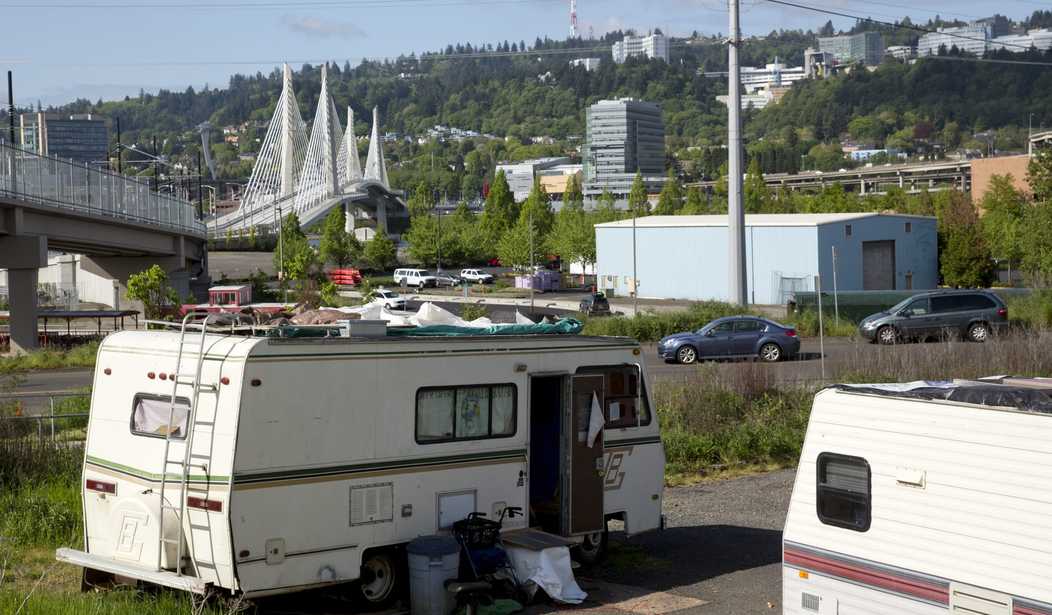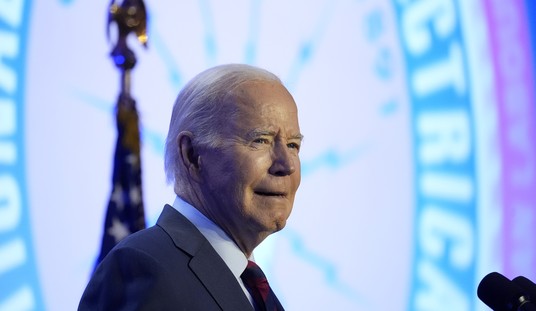Protesters chanting “emergency,” “Black Lives Matter,” and “restore local control” staged a sit-in demonstration in front of the doors to Oregon Gov. Kate Brown’s office in February before walking the halls of the House chamber, banging on walls and doors with their hands and shoes, demanding legislative remedies for what they see as a statewide housing crisis.
Homelessness is so rampant in Portland that Mayor Charlie Hales in early February put forth a plan to regulate what he euphemistically referred to as “camping” on city streets.
Thanks to Mayor Hales, people without a roof over their heads can now use a tarp for protection from the elements and are permitted to spend the night in a sleeping bag on the sidewalk. Or, if they are fortunate enough to own a tent, they can spend the night in any of 10 city-sanctioned campsites.
There is no doubt Portland has earned a reputation as one of the country’s most desirable cities in which to live. Unfortunately, this has led to astronomical rent increases that have no government-regulated ceiling.
It cost $1,689 per month to rent the average apartment in Portland in 2015, 15 percent more than the average 2010 rent of $980. No other city in America has seen that kind of rental price increase over the last five years.
“There is a direct relationship between increasing rent costs and people experiencing homelessness, many for the first time,” Stacy Borke, director of housing services at Transition Projects, told the Guardian. “For some, they were living on a limited, fixed income that allowed them to just get by, and then their rent increased and pushed them over the edge.”
Oregon House Speaker Tina Kotek (D) sat through a two-hour forum in January during which Portlanders who were evicted from their homes after rents rose to unaffordable levels told her of being pushed to the brink of suicide.
“I’m just mad,” Street Roots reported Kotek told reporters at the end of the forum. “I am mad because this is not what we want our state to be. We have a problem, and we need to solve it.”
And so, the Oregon Legislature began working on a variety of proposals Feb. 1 intended to ease the homeless crisis, not just in Portland but across the state. The result was a disappointment for housing reform advocates, while a landlord lobbyist declared victory, and Kotek had to accept much of the responsibility.
Legislation ranging from the establishment of a pilot program for local governments to get involved in the construction of affordable housing, to a new revolving mortgage fund for low-income families, to a higher minimum wage were put on the table.
Other proposals looked to punish what were seen as greedy landlords if they ignored state mandates for rent control and sought to stop the practice of no-cause evictions.
Beyond tighter regulation of rents and landlords, the primary problem was fewer people in Portland were able to afford to rent a home. So Democrats thought raising the minimum wage had to help.
The Oregon Legislature approved, and Gov. Brown signed, legislation that would institute a first-of-its-kind three-tier minimum wage law, based on geography.
The bill increases the minimum wage in gradual steps to $12.50 an hour in economically distressed counties by 2022. The base wage would go up to $13.50 an hour everywhere else, expect Portland and its suburbs, where the minimum wage would be $14.75 by 2022. Still, that’s not enough to close the gap in a high-rent city.
There was no hope for substantial reforms to help the homeless or those on the verge of losing their homes in the brief 35-day 2016 session of the Oregon Legislature.
While House Speaker Kotek spent two hours with affordable-housing advocates, she also met with landlord lobbyists. Eventually, House Democrats in Salem decided to wait until 2017 before waging a serious fight against no-cause evictions.
Jim Straub, the legislative director of the Southern Oregon Rental Housing Alliance, sent out an email to the group’s members saying they had reached a compromise which “we believe is in the best interest of Oregon landlords given the political climate” and was “a huge victory.”
He notified SORHA members that restrictions on no-cause evictions had been erased, a mandate for tenant relocation assistance from landlords was defeated, and penalties of up to three months’ rent against landlords who don’t follow the law or rules of rent increases were also removed.
Tenant protection provisions that did win approval in the House were pared back to the point where Rep. Alissa Keny-Guyer (D) told her Facebook followers that she was “very, very sad and frustrated.”
Senate Majority Leader Ginny Burdick (D), who some House Democrats like Keny-Guyer blamed for blocking sweeping new housing legislation, said complete relief in the form of a comprehensive omnibus package was just too much to handle during a brief 35-day legislative session.
“There really is a crisis out there,” she told the Portland Tribune. “People are being thrown out of their apartments. It’s a very serious problem in Portland, so I would hope to do at least something on it, but it won’t be the omnibus bill. It was just too ambitious for 35 days.”








Join the conversation as a VIP Member